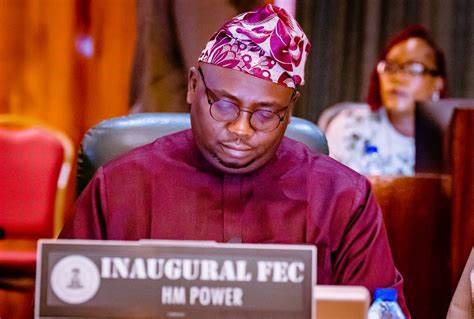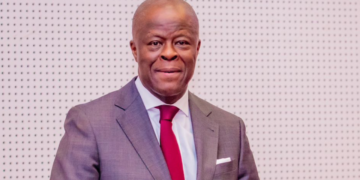Minister of Power, Chief Adebayo Adelabu has announced that efforts were ongoing to restore power and address the prolonged power outages affecting the northern part of the country.
Adelabu stated this while addressing State House correspondents on Monday after meeting with President Bola Tinubu at the Presidential Villa in Abuja.
The minister also assured that the government is committed to improving power stability and reliability across affected regions.
He outlined the steps being taken to tackle the current electricity crisis, which has left 17 northern states grappling with power shortages due to recent vandalism of power infrastructure.
Adelabu blamed vandalism critical transmission lines along the Shiroro-Kaduna route, a key line supplying electricity to the north as the root cause of the outages.
He confirmed that the Transmission Company of Nigeria (TCN) has mobilised repair teams, who are now receiving security support from the National Security Adviser, as well as from the Chief of Defense Staff and Chief of Air Staff, to protect personnel as they work to restore the damaged line.
“We discussed the root cause of this, which was basically due to vandalization of the transmission lines of Shiro Kaduna line, which is the major line that supply electricity to the north, and the transmission Company of Nigeria (TCN), they already set out to fix this line.
“What they have asked for, which has been provided to them now is the security cover of the National Security Adviser, through the Chief of Defence Staff and Chief of Air Staff to enable them restore the damaged line and we are optimistic that very soon, this will be fully restored,” the minister said.
He added that the alternative line is also undergoing repairs following the damage it also suffered during the recent disruptions.
As a long-term solution, Adelabu shared plans for a distributed power model tailored specifically for northern Nigeria, which would see each northern state equipped with its own solar power station.
He explained that this approach leverages the region’s ample sunlight, enabling local power generation that reduces reliance on the national grid.
Each of the 19 northern states is expected to initially produce 50 megawatts, with capacity scaling up to 100 megawatts over time.
According to him, “When we talk about a final volume of 100 megawatts for each of the northern states, this includes targeting not just households and looking at offices. We’re looking at institutions, both health and education institutions, and we’re looking at industrial clusters that are the major consumers of power. You understand, I believe 100 megawatt is just enough for us to attract good investors.
“But before then, it is scalable. We will start from having a 50 megawatt for each of the states, which we believe will go around whatever activities that happen in all of the northern states on a state-by-state basis.
“In fact, there are still some states in the north that do not need more than 25 megawatts. So, our plan is to ramp it up to 200 they will start low and then build up on whatever we have,” Adelabu said.
In response to concerns over national grid stability, Adelabu acknowledged that much of Nigeria’s grid infrastructure are outdated, with some components exceeding 50 years in service.
He said the government is actively working to overhaul the grid and establish a “super grid” backup system that would provide an alternative pathway for power transmission if the primary grid experiences issues.
This initiative, he said, is part of a broader goal to regionalise power supply, creating independent grids to prevent disruptions in one area from affecting other parts of the country.
Addressing customer concerns, the minister added that the government is taking steps to hold electricity providers accountable.
He further announced plans to ensure that consumers affected by blackouts, particularly those in high-service Band A zones, will not be billed for days when they were without power.
Adelabu appealed for patience from northern residents, assuring that the government is fully committed to restoring and securing stable power.
He emphasised the importance of safeguarding infrastructure, urging communities to work together to prevent further vandalism and protect their energy supply for the future.





